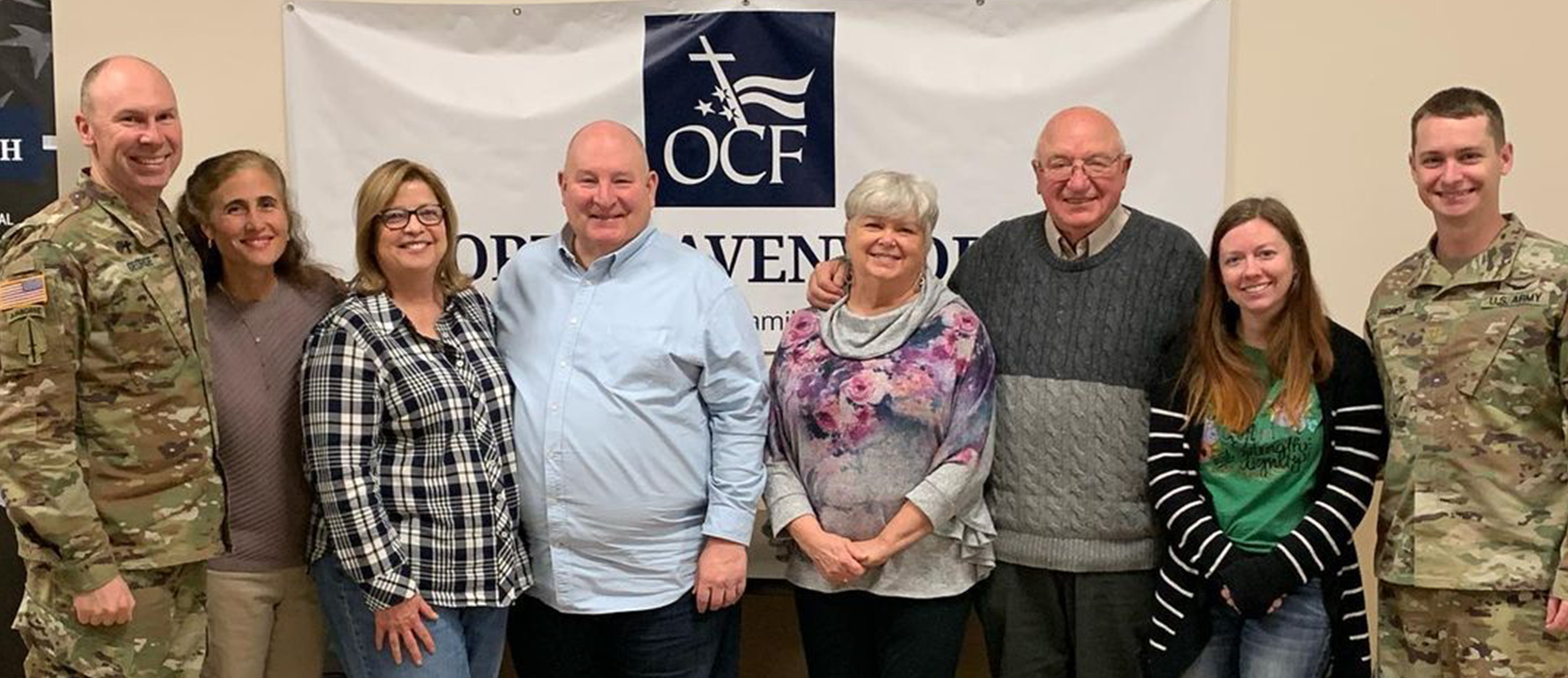10: Pray-Discover-Obey (PDO)
IN THIS CHAPTER
The PDO process emphasizes prayer first, planning second, and obedient action third. This model helps OCF members to be still before God, asking Him for wisdom and direction before future actions are planned out. (See the appendices for a quick-reference PDO checklist.)
Download the Handbook
Get a PDF of the entire OCF Handbook, including all chapters and appendices.
WHY PRAY FIRST, PLAN SECOND
The concept of the Pray-Discover-Obey (PDO) process came into OCF when we were called Officers’ Christian Union (at that time PDO was known as Pray & Plan). The military culture needs this idea of prayer first and planning second because we have a natural bent toward immediate action and the pursuit of results. We are a people who love to make plans, to use our own wisdom, and to ask God to bless our plans. Sin nature leads us to this self-confident view, a view that can distract us from examining the Scriptures for God’s instruction and wisdom. We even resist acknowledging that God directs our steps (Proverbs 16:9).
God alone gives us the ability to integrate our Christian faith within the military so that it informs every aspect of our personal lives. To battle this natural inclination, OCF asks our leaders to use the PDO process in the hope that our staff, volunteers, and OCF groups will regularly seek God’s wisdom.
In James 4:13-17, James writes to dispersed Christians that it is evil to boast arrogantly about what we will do today, tomorrow, or next year. Instead, we “ought to say, ‘If the Lord wills, we will live and do this or that.’” How wonderful it would be if every OCF fellowship, leader, and family spent time in the Word and prayer asking God for wisdom regarding how to spend our days and how to use God’s resources. James concludes with, “So whoever knows the right thing to do and fails to do it, for him it is sin” (v.17). Ask God for help discerning the right thing to do.
The PDO process has many variations, since it may be used by an individual, a couple, a family, or a larger group. Here are some of the steps and thoughts you might use:
BEFORE THE PDO
- Prepare by studying and meditating on Scripture as you begin in the “PRAY” phase before you meet with future participants and supporters.
- Invite others to pray with you about the PDO.
- Consider fasting to prepare spiritually.
- Draft topics and categories you will cover in PDO.
- Set PDO date and time, then invite participants.
DURING THE PDO
- Begin in verbal worship (this is a continuation of the “PRAY” phase started previously). You can use song, prayer, and reading Scripture. Thank God for putting you at your current assignment and ask Him to direct the steps of the local body.
- Start the “DISCOVER” phase by moving through the topics you drafted. You can have a short prayer before each topic, or you can stop and pray when you hit a tough decision or sticking point.
- Set aside preconceived ideas and stay humble. Try to include everyone in the discovery phase. If something contentious arises, stay aligned with the Scriptures.
- Take notes—write down key points and thoughts.
- Develop an objective or goal for topics requiring action. Gain participant agreement on goals.
- End in worship (song, prayer, Scripture).
AFTER THE PDO
- “OBEY” means using God’s resources for the work He has given you or the group to do.
- Ask for help staying on course. Consider who might help you take action (obey) and persevere in that action. It may be someone nearby or a friend from afar.
- Repeat the PDO process as needed (at least annually). Plans need review and updating as the group and purpose for meeting develop and change over time.
POSSIBLE PDO GROUP TOPICS TO CONSIDER:
- When, where, what time to meet
- What to study and the format to use
- Will you include food, music/song, games, etc.
- Childcare and participation of children
- Order of events: Prayer, Study, Fellowship, Music, Food, etc.
- Name of your group for advertising purposes
- Chaplaincy coordination
- How to make the group visible (advertising)
- Who is group admin? (to coordinate, synchronize the group)
- Who will update the info in the OCF Directory (ocfusa.org)
- Leadership during TDY/TADs, deployments
- Transitions, handoffs during PCS season
POTENTIAL FAMILY/PERSONAL PDO CATEGORIES FOR PRAYER AND DISCUSSION:
- Spiritual growth, personal and family
- Hospitality, community engagement
- Church roles, service opportunities
- Education
- Vacation, travel plans
- Finances: budget, tithes, offerings, etc.
- Fitness and health
- Property, resource stewardship
- Assignment, job prioritization
- Stay in or transition out of the military











